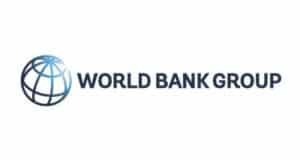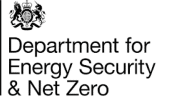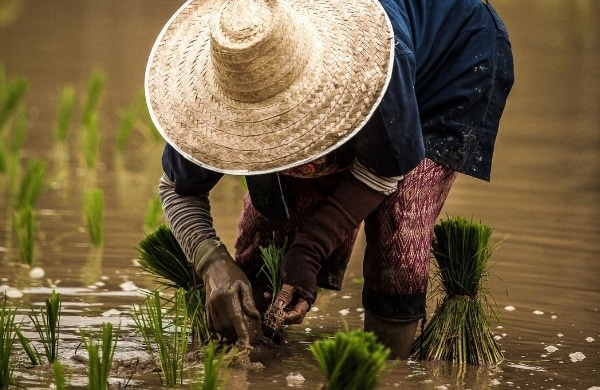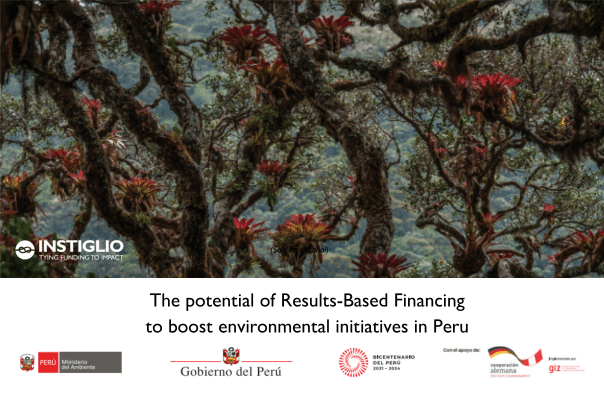Overview
Type of Project
|
Long-term deep country systems change
|
Strategic Pillars
|
Government PartnershipsScale Partnerships
|
Sectors |
Early Childhood DevelopmentEducationEmploymentPoverty AlleviationPublic Institution ManagementSocial Support
|
Regions |
GlobalLatin America and the CaribbeanSub Saharan Africa
|
Countries |
ColombiaEcuadorUgandaEthiopia |
Abstract
The climate crisis is the great challenge of our time. A warming planet means a poorer planet with more instability and hardship, especially for the most vulnerable. To avert the worst of this climate and meet global net zero objectives by 2050, it is critical that more funding is dedicated to mitigation efforts but also that this funding is used as effectively as possible, reliably delivering mitigation benefits. At the same time, we face growing pressure to deal effectively with the social and economic costs of a warming planet. By supporting climate actors, Instiglio works to ensure that every dollar spent on climate mitigation and adaptation is delivered with the greatest possible impact.
Climate pull finance
Mitigating emissions requires rapidly catalyzing the development and use of new climate technologies. However, clean technologies are predominately developed and adopted in high-income countries, with limited adoption in low- and middle-income countries (LMICs), which are often countries that are highly vulnerable to climate change. Addressing market gaps holds the potential to support climate mitigation effects in LMICs.
To respond to this need, Instiglio is collaborating with a coalition of actors to advance the potential of pull finance to mitigate emissions in areas including cement, cooling, transport, energy and agriculture. This work is detailed in our publications with the Center for Global Development and forthcoming publications with the UK Government Department for Energy Security and New Zero. We have likewise collaborated with the University of Chicago, being selected as prize winners in their Market Shaping Accelerator and supported to further develop a detailed case for the use of pull finance to shape the market for clean cement in India.
Results-Based Climate Finance
Instiglio is pioneering innovative approaches to drive climate results across diverse areas such as fossil fuel subsidies, appliance standards, electric mobility, forestry, and the carbon market, among others. For instance, we have documented this progress in a World Bank report on Results-Based Climate Finance (RBCF), and we are collaborating with the World Bank to build the capacity of partner governments to engage with RBCF through a series of trainings in countries including Colombia and DRC.
Project
Partners






Knowledge Products

RBCF to Support Mitigation Policies in Developing Countries
This note seeks to inform the use of results-based climate finance (RBCF) by World Bank trust funds for the implementation of climate change mitigation policy in low- and middle-income countries (LMICs).
The note outlines the role RBCF can play in support of the implementation of climate change mitigation policy and outlines how RBCF can be designed and applied to this end. It includes illustrative design blueprints for three specific policy areas: fossil fuel subsidy reforms (FFSRs), energy efficiency standards (EES), and the introduction of feebates to promote low-emission vehicles.
The note is intended to support country governments that are implementing mitigation policies and are interested in gaining access to RBCF funding to support these actions; World Bank task teams working on programs to support policy implementation; and development partners that are interested in deploying new climate finance instruments. It is an accompaniment to a more detailed report entitled Results-Based Climate Finance to Support Mitigation Policies in Developing Countries.

Sector note: RBF in agriculture and land administration
Increased investment in agriculture and land administration is vital for achieving Sustainable Development Goals related to poverty and hunger elimination. Agriculture is a major source of employment and income, particularly in Africa. Challenges include inadequate access to inputs, knowledge, infrastructure, and credit, along with gender inequality.
Despite decades of interventions, outcomes often fall short due to inadequate adaptation to local contexts. To address this, international development agencies are exploring Results-Based Financing (RBF) as an innovative financing mechanism. RBF ties funding to measurable results, providing performance incentives for effective service delivery.
This Sector Note provides practitioners with an analytical framework for applying RBF in agriculture and land administration interventions. It covers an introduction to RBF, outlines sector characteristics, discusses the rationale for RBF, and highlights considerations for appropriate design. Insights are derived from a review of RBF programs and expert interviews in the agriculture and land administration sectors.

Catalyzing Climate Results with Pull Finance
As Dissanayake (2021) and Dissanayake and Camps (2022) have argued, pull financing is an underutilized tool with the potential to drive the development and adoption of critical technologies necessary to address the globe’s climate crisis. The paper builds the case further and provides tangible examples by presenting two case studies that illustrate how pull climate finance can be used to deliver urgently needed climate results and support development objectives across low- and middle-income countries.
The case studies respond to two pressing issues contributing to the globe’s climate challenge: (1) the growing use of energy intensive residential air conditioning and (2) the common use of stubble burning agricultural practices. For both cases, we propose that an Advance Market Commitment (AMC), a form of pull finance, could be used as a promising tool to enable technology development and adoption, driving a market shift towards a new and cleaner equilibrium. In the case of cooling, we outline the potential of an AMC to drive a sustained shift in the Indian market by enabling the scale-up of cleaner cooling technologies, driving down their costs to ensure their future competitiveness. In the case of stubble burning, also focused on India, we show that an AMC could offer incentives for producers to innovate to drive short-run take-up of stubble burning alternatives, facilitating a sustained market shift to stubble burning alternatives in the medium-term. We find both cases hold promise to achieve substantial and cost-effective emission reductions, as well as important development benefits in the form of both economic and health outcomes—a finding which should justify significant investments.

The potential of Results-Based Financing to boost environmental initiatives in Peru
This document seeks to highlight concrete opportunities on how Results Based Financing (RBF) can contribute to overcome the challenges of environmental financing in Peru. Taking the example of initiatives in Natural Infrastructure and Bio-Business, and through various case studies, the document shows the usefulness of Results Based Financing as an innovative mechanism to capture more environmental funding and achieve better environmental results.
Results-Based Financing is a logic where resources for social and environmental initiatives are conditioned to the results expected to be achieved, and not only to the activities or the budget executed. Under this logic, the funder of an environmental initiative would pay the service provider according to the fulfillment of certain results that are previously agreed and then verified. Some of the most common mechanisms of Results-Based Financing are Performance-Based Contracts, Impact Bonds, Performance-Based Transfers and Payment by Results Funds.
Awards
Phase I: Instiglio has been selected as a winner of 4/4 ideas submitted to the Market Shaping Accelerator organized by The University of Chicago.
► Phase 1 Winners







